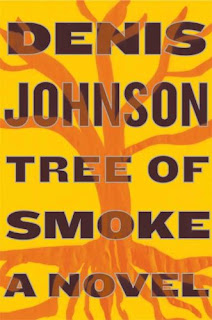 By Barrister Shaw
By Barrister ShawStieg Larsson is many things, journalist, magazine editor, communist, novelist and sadly, a corpse. It turns out the man died in 2004 leaving three complete novels unpublished. The first of these books found its way to translation and release in the US under the title
The Girl With The Dragon Tattoo, GBCOA’s ninth selection.
Girl’s plot introduces Mikael Blomkvist (pronounced Bloomquist) a respected financial journalist and Millenium Magazine editor facing a losing battle in a libel court case against a shady industrialist as the novel opens. While he’s trying to figure out how to cope with the threat to the loss of his journalistic good name and jail time (or gaol, stubbornly un-translated in the text), a wealthy benefactor in the form of Henrik Vanger makes him a job offer he can’t refuse: Spend a year on a secluded island writing a Vanger family history for a huge cash payout and hard evidence of guilt on the aforementioned shady industrialist. The catch: Blomkvist is actually there to solve the long cold mystery of the disappearance of Vanger’s favorite niece 30-odd years ago. Tall order, since the best of Sweden’s police and Vanger’s own extensive resources have failed to produce any results over that time.
Over the course of the novel, we also get to meet Lisbeth Salander (the titular girl with the dragon tattoo), a highly intelligent and capable intelligence and research expert with major antisocial and anti-authoritarian tendencies. Lisbeth is the most compelling character in this book, smart, wily, tough as nails yet sympathetic. From the outside, she appears to be just another troubled adolescent, even diagnosed as retarded by a state system with no clue as to how to recognize her abilities. Blomkvist and Salander eventually join forces to solve the mysteries of the Vanger family in the most compelling section of the book.
Yes, for about 150 pages, you get a cracking murder mystery, cat and mouse chases, revelations and resolutions. Too bad this book is 450 pages. I get that this is the first book in the series and there’s a lot of character groundwork to be laid. I get that. And the book is well written, no issue there. Clear, concise language that Saramago* could take a page from. But this is the GBCOA, and we have some gripes.
• Get to the story already. Jesus Christ, do we need 250 pages of Blomkvist sitting on his ass reading reports? I’ve had to read reports before, and the only thing more boring than doing the reading is reading a description of someone reading excruciating reports. If he’s not doing that, he’s farting around the island, bemoaning the cold and carrying on inappropriate affairs with Cecilia Vanger (described by Zach as Glenn Close). Speaking of which:

• Apparently Blomkvist is a machine with the ladies. Young women, old women, married women, they can’t get enough of the Stieg, oh wait, I’m sorry, Blomkvist. His partner at his magazine is a married woman who frequently just bangs away at him like a screen door in a hurricane. You see they’re old friends, so it’s all good. Besides her husband is cool with it. Then there’s Cecilia, who’s like 60 and knew from the first moment she saw Blomkvist move in the cabin next door that she wanted to get some of that pickled herring. And of course there’s Lisbeth, who is so thrown off by his cool, capable demeanor she has to figure him out, naked of course. All fine if you have some dashing lead character in mind but all I could picture was some doughy pale Swede resembling the author himself.
• The mystery all of a sudden just starts unraveling at a breakneck pace, which would be fine if the trigger behind it wasn’t just “I saw something in this picture and it hit me.” When it’s a mystery, we want to play along. We want to be able to make educated guesses with the scraps of evidence presented. When the pieces start falling into place we want to smack our foreheads and wonder why we hadn’t seen the clues in that light before. Here you’re just hanging on to the bumper of the car as it blazes down the road.
• An ending that drags on longer than the Lord of the Rings. Especially when it wraps up with corporate subterfuge. People drama = interesting. Business drama = zzzz.
• Spoiler Alert: Larsson really went for it in his first book. Evil-wise you’re dealing with misogyny, rape, kidnapping, torture, incest, murder and Nazis. That’s the Grand Slam Special of novel villainy. Save a little for the sequels, Steig. At this point I think you only have aliens and zombies left in the omnibus of evil.
The Gentlemen agreed there were good and bad parts to the book, but were left underwhelmed, and amid some allegations of voter fraud, came to rest on the first ever combined neutral rating. Only Zach and I had interest in possibly reading Larsson’s follow-up novels. Wells said he’d read a synopsis. Lichtenauer wants no part. Much like a temporary tattoo, it’s amusing for a bit, then washes away with little effort or longstanding effects.
*Yes I know Saramago’s style is unique, wonderful and artistic, but I swear sometimes it was like trying to read broken glass.

Overall rating:
Whale Oil LampBarrister Lichtenauer: -2.5
Barrister Russell: +0.5
Barrister Shaw: +2.0
Barrister Wells: 0.0
Meeting Place: To honor both the Dragon in the title as well as Larsson’s status as a godless Communist, the Gentlemen convened over Chinese food at
The Red Dragon House.
Next Up:
Bright Shiny Morning by James Frey





















